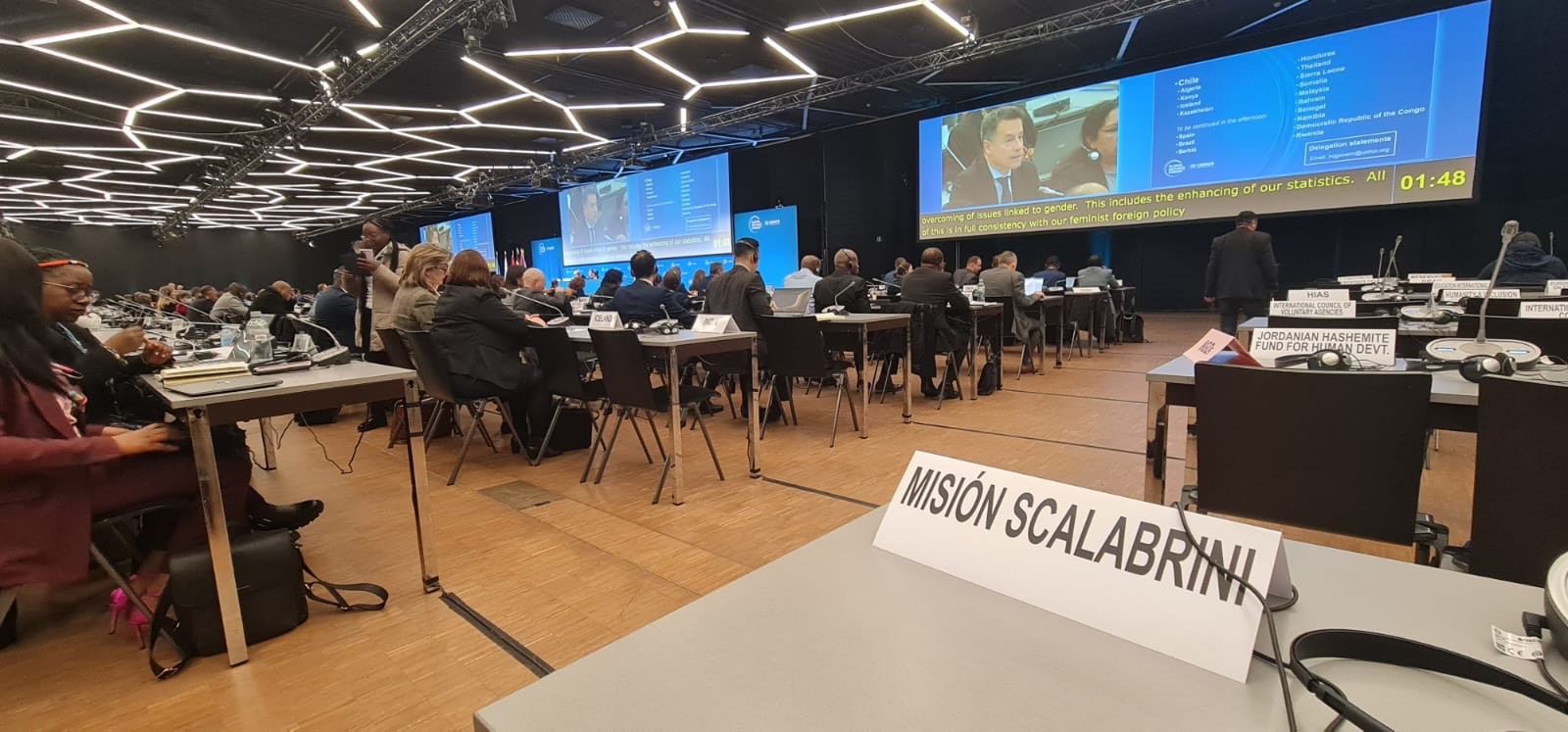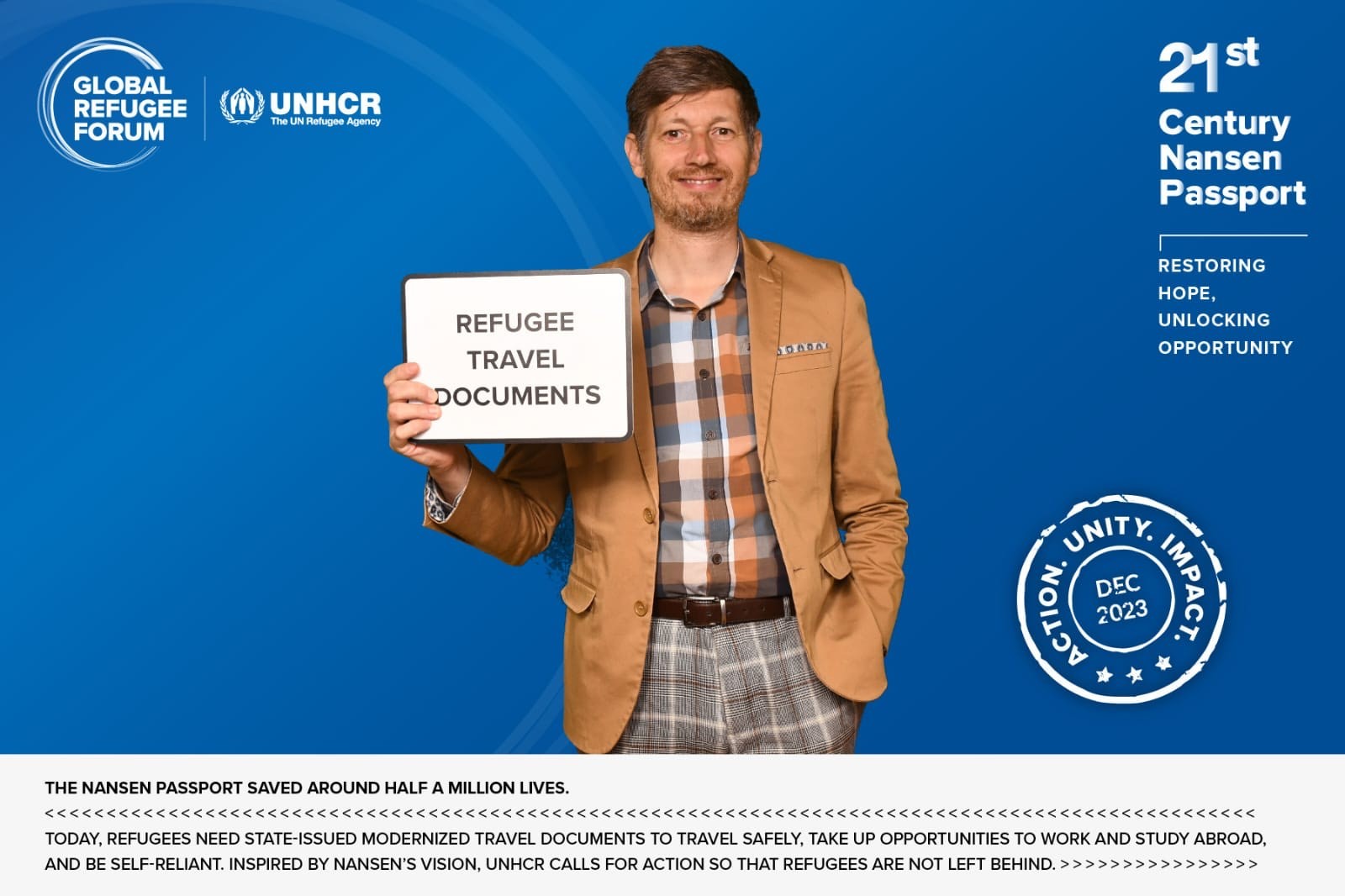
The Global Refugee Forum 2023
The Global Refugee Forum 2023, which took place from December 13 to 15 in Geneva, Switzerland, met in an effort to address the escalating challenges faced by the growing number of refugees worldwide. Co-convened by Colombia, France, Japan, Jordan, and Uganda, and co-hosted by Switzerland and UNHCR, the Forum gathered more than 4,200 participants from 168 countries, including over 300 refugee delegates. The Forum aimed to support the practical implementation of the objectives outlined in the Global Compact on Refugees:
- Ease the Pressures on Host Countries: Recognizing the significant burden on low to middle-income countries hosting refugees, the Forum stressed the need for comprehensive support, including financial aid, humanitarian-development-peace nexus strategies, and climate action initiatives.
- Enhance Refugee Self-Reliance: Emphasizing policies supporting refugees' agency, the Forum focused on investments in education, healthcare, mental health, and socio-economic opportunities. Pledges were made to transform refugee camps into integrated settlements.
- Expand Access to Third-Country Solutions: Addressing resettlement and complementary pathways, commitments were made to resettle 1 million refugees by 2030 and support safe complementary pathways for 200,000 refugees through skills-based programs.
- Support Conditions in Countries of Origin for Return in Safety and Dignity: Recognizing voluntary and sustainable repatriation as a responsibility of the country of origin, pledges were made to address root causes through peacebuilding, conflict prevention, and digital initiatives.
The GRF served as a platform for governments, refugees, local authorities, international organizations, and various other stakeholders to commit to meaningful action. Given the interconnected nature of the Compact’s objectives, the Forum announced cross-cutting multi-stakeholder pledges aimed at improving protection, inclusion, and solutions in specific situations. Over 1,600 pledges were made, including 43 multi-partner commitments led by governments. These commitments, amounting to an estimated $2.2 billion in new financial support, including some $250 million pledged by the private sector, offer some hope in assisting the 36 million refugees displaced worldwide.

The Scalabrinian network actively participated in the Global Refugee Forum, with representation from key figures such as Fr Marcio Toniazzo, Executive Director of the Scalabrini International Migration Network (SIMN), based in New York; Fr Ildo Griz, who coordinates the Study Centre (CEMLA) in Buenos Aires, Argentina; and Fr Filippo Ferraro, Director of SIHMA in Cape Town, focusing on migration in Africa.
SIMN fulfills its mission through an extensive network of think tanks, social service centers, shelters, senior centers, orphanages, medical clinics, kindergartens, schools, employment centers, and cultural hubs. Collaborating closely with various entities at the local, national, and international levels, SIMN is dedicated to promoting comprehensive service programs and advocating for the dignity and rights of migrants and their families.
Fr Filippo Ferraro shared insights from many intense days of debates, conversations, and exchanges of views and plans with representatives of governments, international bodies, non-profit organizations, and civil society during the Forum. Amid the ongoing crises in the situations of Palestine and Israel, and Ukraine and Russia, the discussions highlighted the extraordinary impact of violence and geopolitical conflicts on the fates of numerous populations in extremely vulnerable conditions. At the same time, the need to address other areas of great concern, especially in Africa, must not be forgotten. In light of this, the Forum included side-events discussing scenarios in regions with a high density of refugees and displaced persons, such as Central and East Africa (IGAD). The discussions aimed at fostering a direct and effective involvement of actors who can make a change or take a step forward towards peace and stability in these regions.
A unique feature of the second GRF was the presence of refugees themselves as well as speakers who had experienced the plight of asylum seekers and refugees firsthand. This added a human element to the discussions, contributing to a deeper understanding of the needs, struggles, and aspirations of refugees, as they were able to speak to their own stories rather than be represented.
Since the last Global Refugee Forum in 2019, African states have collectively pledged over 300 commitments to address the challenges of forced displacement. The breakdown of these pledges show Western and Central Africa leading with 122 commitments, followed by Southern Africa with 104, and the East and Horn of Africa, and the Great Lakes Region, making 86 commitments. However, of over 300 pledges made by African states, only 33 (18.23%) have been fulfilled to date, highlighting the gap between commitments and implementation. Moreover, no new pledges were announced by African states, suggesting a potential decline in the work that governments are doing and emphasizing the importance of assessing and enhancing the fulfillment of existing pledges to ensure that the continent continues to contribute effectively to addressing the global refugee crisis.
Sources:
UNHCR - Global Refugee Forum 2023
UNHCR - Summary of Global Refugee Forum 2023
Global Compact on Refugees - Pledges and Contributions.
Categories:
Tags:

